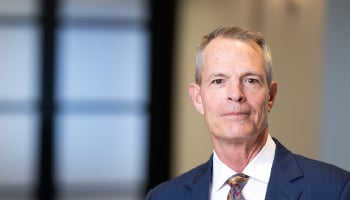Related Services
Chunks of Change for the Laboratories of Democracy*
In the wee hours of May 5, 2017, a state governor awoke, startled. Late on May 4, he or she had been briefed on the Patient and State Stability Fund and the Federal Invisible Risk Sharing Program described in § 132 of the American Health Care Act. The reptilian brain was working, as always, in the background until it brought the body bolt upright in bed. Our governor mumbled, “Billions would flow annually to states and insurers to fix the problems that Washington couldn’t fix. The governor who succeeds will be the next President.”
Our hypothetical governor wasn’t dreaming. If the AHCA becomes law, beginning in 2018, over $15B annually will be spent on this experiment. Most of that money will fund state waiver programs that will be auto-approved, from 2018 through 2026, unless affirmatively rejected by CMS within 60 days of filing. See AHCA § 132, adding to the Social Security Act new § 2203.
Of course, strings will be attached. Applications for 2018 funding must be submitted within 45 days of AHCA enactment, in a form and manner yet to be prescribed by CMS. Each application must certify, “that the State will make, from non-Federal Funds, expenditures for such purposes in an amount that is not less than the State percentage required for the year under section 2204(e)(1).” And, CMS will have to decide what to do if different state officials submit competing state plans, because the statute does not address that issue. If no 2018 plan is received, or if the state plan is rejected, then CMS will coordinate a Default Federal Safeguard program with the state’s insurance commissioner.
This isn’t Medicaid expansion by another name. The use of funds permitted by new § 2202 is broader, including assistance to high risk individuals, individual and small group market stabilization, facilitating access to preventive services, and payments directly to providers. Plainly, the AHCA seeks to encourage local innovation.
Somewhere, perhaps soon, some governor will study this with staff, come up with something others consider crazy, and repeat these words famously spoken by Dr. Frederick Fonkensteen – “IT . . . COULD . . . WORK!”
____________
*See New State Ice Co. v. Liebmann, 285 U.S. 262, 311 (1932) (Brandeis, J., dissenting)


